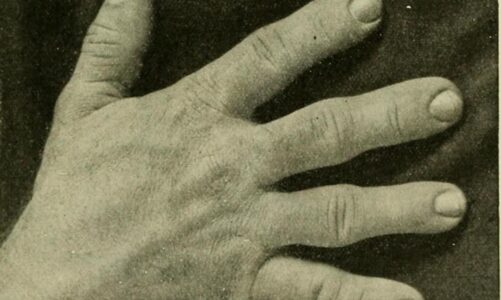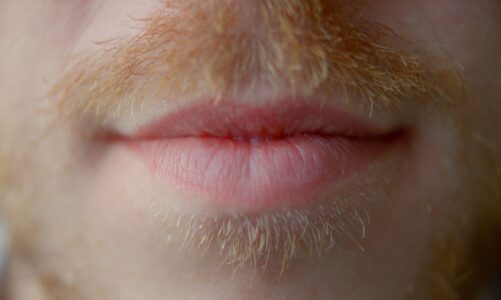Overview
Anorexia nervosa, more commonly referred to as anorexia is a serious and potentially life threatening mental health condition. Anorexia actually means loss of appetite, but people with anorexia still get hungry, but starve themselves in order to lose or control their weight. They don’t only do this by reducing the amount of calories they eat, but also by taking laxatives or diuretics, making themselves vomit or using enemas or exercise to excess to burn off the calories they do consume.
Anorexia can affect anyone no matter their age, gender, ethnicity, or body type. It tends to occur more commonly in teenagers especially in young girls, although cases amongst boys are increasing. It is rare for anyone over the age of forty to develop the condition.
People with anorexia often have a distorted body image and an intense fear of gaining weight, they associate being thin with feelings of self-worth. Whilst people with anorexia may seem obsessed about food and losing weight, the condition is their way of coping with extreme emotional challenges or trauma.
Causes
There are a variety of reasons that could cause someone to develop anorexia, but there is no known single cause of developing an eating disorder and reasons can vary amongst individuals.
Contributory factors for developing anorexia, or suffering a relapse can include, but are not restricted to the following:
- A history of anorexia in the family or family members who have had depression or a history of drug or alcohol addiction
- If they have suffered from a stressful life event like moving home, school or work, or the end of a close relationship or bereavement
- Have personality traits such as perfectionism, low self-esteem or an obsessive personality
- If they have suffered trauma, or sexual or physical abuse
- Social or cultural pressure, or if they work in an industry that promotes being slim like acting, modelling or social media
- If they were criticised about their weight, body shape or eating habits
- Dieting can also be a risk factor especially on very low calorie diets or food replacement diets
- It’s believed some people have a genetic tendency to developing an eating disorder
Anorexia causes not only physical and psychological symptoms but also behavioural changes in a person. These can include a combination of the following, which can vary depending on the individual:
Physical Symptoms
- Sudden or extreme weight loss over a short period of time
- Muscle weakness or loss of muscle mass
- Feeling light headed, dizzy or weak
- Fatigue, dehydration or exhaustion
- Dry or yellow skin, or damage to the fingers or knuckles from inducing vomiting, brittle nails or a bluish tinge to the fingers or cold mottled hands from poor blood flow
- Swelling of the hands and feet
- Hair thinning or loss or an increase in facial hair
- Feeling cold all the time and developing lanugo, a soft downy growth of hair on the body
- Concentration problems and memory loss or problems sleeping such as insomnia
- Fitting and seizures
- An irregular heart rhythm, abnormal blood count or low blood pressure or impaired immune system
- Kidney or bowel problems, abdominal pain or constipation
- Changes in the menstrual cycle and fertility problems
- Reduction in testosterone levels
- Dental problems including cavities, damage to enamel, bad breath or tooth discolouration due to regular vomiting and bringing up stomach acids.
Psychological Symptoms
- Have an intense fear of gaining weight
- Feel fat even when they are underweight
- Have an unrealistic perception of their body image
- Anxiety, stress or depression
- Loss of libido or reduced sex drive
- Feeling irritable
- Withdrawing socially
- Having a strong desire for control and inflexible thinking
- Lying about how much they have eaten or that they don’t feel hungry when they do
- Feeling indifferent, worthless or hopeless
- Being self-critical and striving for perfection
Behavioural Changes
- Avoiding meal times or eating out in public
- Limit or reduce their food intake, or restrict certain types of food or stop eating them altogether
- Develop rituals around food like how their food is arranged on the plate, cutting it into tiny pieces, eating slowly or in secret
- Obsessing over food, calories and nutrition, or preparing food for others but not eating themselves
- Start using diet pills, laxatives or diuretics
- Exercising excessively even if they feel weak or ill
- Looking at their reflection constantly or pinching themselves to measure body fat
- Start to wear layers of clothing because they are cold or trying to disguise their weight loss
Risk Factors and Complications
Anorexia is a serious psychological condition but the physical affects its symptoms can have on the body can be extreme. It can also prove fatal, and death can occur suddenly and sometimes when a person does not seem to be severely underweight. Having anorexia can lead to developing:
- Anaemia
- Kidney problems
- Muscle wastage
- Heart problems, including abnormal heart rhythms known as arrythmias, mitral valve prolapse or heart failure
- Bloating, constipation, nausea and other gastrointestinal problems
- An absence of periods in women or a disruption of their menstrual cycle and low testosterone levels in men
- Bone loss, which can lead to fractures and breakages as well as osteoporosis
- An imbalance of electrolytes, minerals such as sodium, potassium and calcium
If the body becomes severely malnourished then potentially every organ can be damaged including the brain, this damage may not always be reversible even if they eventually get their anorexia under control. As well as physical health problems it’s common for people with anorexia to also have or develop other mental health disorders, this can include conditions such as:
- OCD (obsessive compulsive disorder)
- Anxiety, depression or mood disorders
- Personality disorders
- Alcohol or substance misuse
- Self-harming or suicidal thoughts or suicide attempts
Professional Help and Treatment
Sadly because people with anorexia don’t believe they are underweight or have a problem, they are often unlikely to seek medical help. Also as the condition is often surrounded by denial, shame and secrecy it can be difficult to spot so can go unrecognised for some time.
Initially you should consult a doctor who can diagnose the condition and do routine tests to check for any serious damage or health conditions that have developed as a result. If your health or life are in immediate danger they can have you admitted to hospital for emergency treatment. They can also prescribe the relevant medications and refer you to a nutritionist and psychotherapist to help manage and overcome your anorexia.
A nutritionist can help ensure that you receive sufficient nutrition and provide guidance and meal plans to help reverse any effects of malnutrition, whilst working to regain and maintain a healthy weight.
A psychotherapist can provide a variety of therapies to help you and these can include a combination of therapies such as:
- CBT (cognitive behavioural therapy), which works on changing negative thinking and behaviours and teaches you to recognise the link between your thinking, and emotional response, to your eating behaviours. CBT is the most common type of therapy used for adults
- Family based therapy can be highly effective for children and teenagers, and encourages the whole family to provide support and work towards recovery
Support groups can prove helpful but should be used in conjunction with professional medical care. Written by Jan, Jeana and Wendy at Barnsley Hypnosis and Counselling (UK). For more free information click above link.
##########




